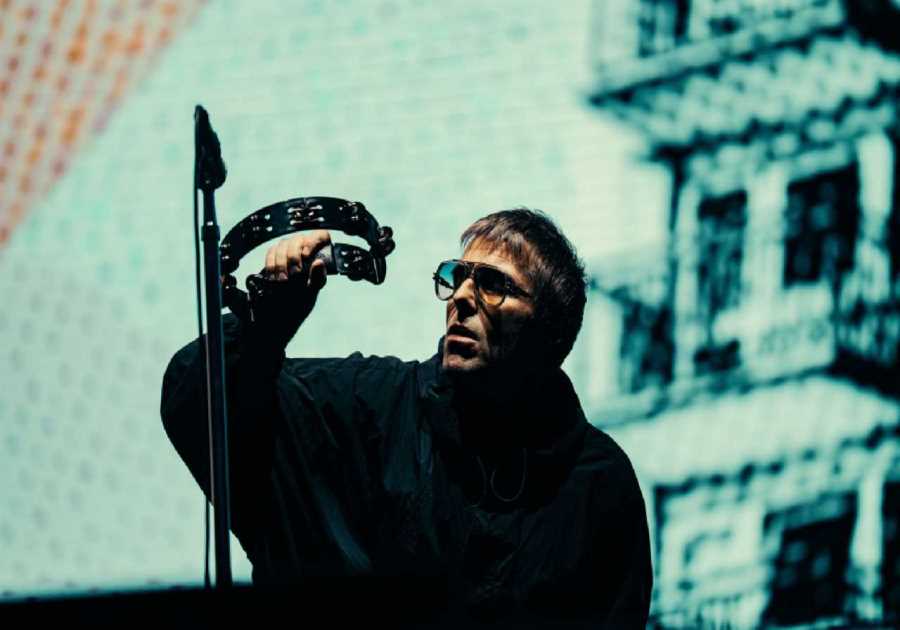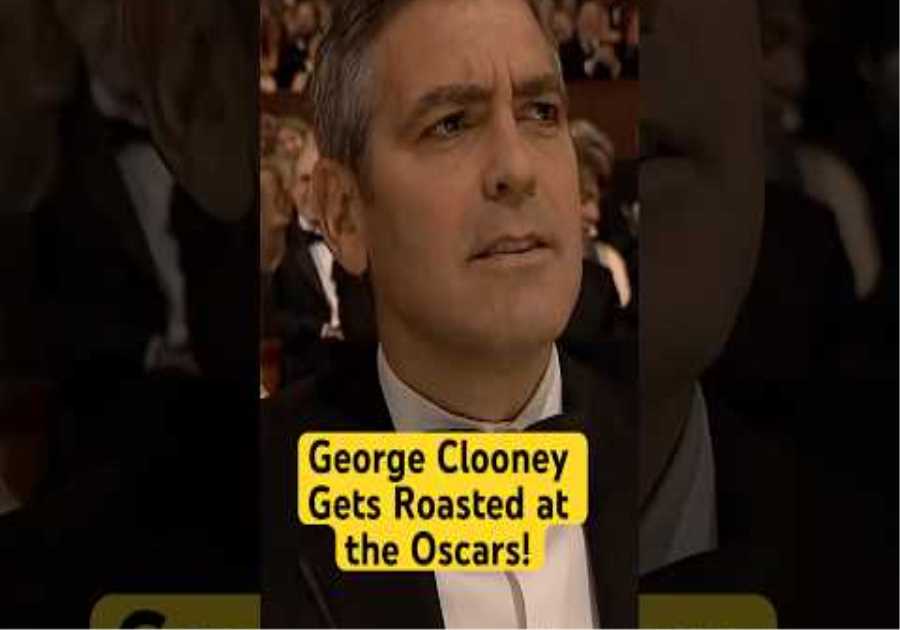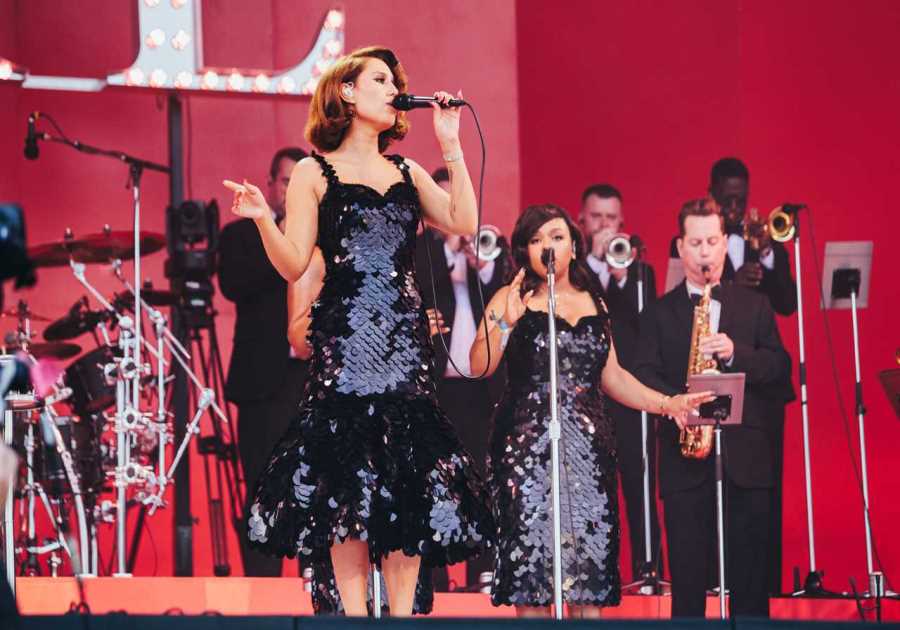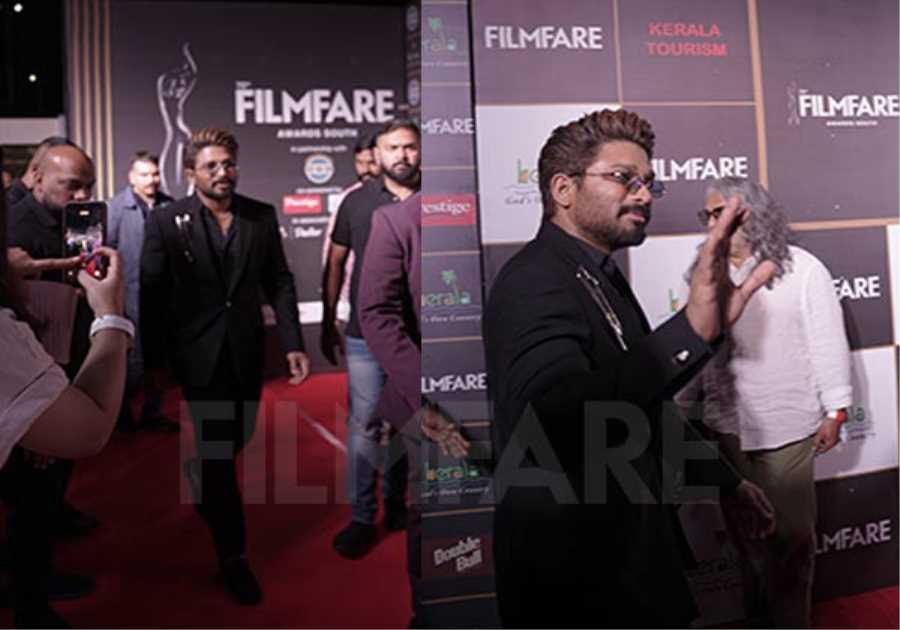In making his debut in the Marvel Cinematic Universe, lauded composer Lorne Balfe met with Black Widow director Cate Shortland and proceeded to discuss everything but superhero movies. As Balfe told me during a recent extended interview, his early conversations with Shortland were about the intimate family aspect of Black Widow, which is how he hit upon the idea of drawing from Russian folk music for the film’s themes. However, given that a lot of Russian folk music is somewhat well-known, Balfe set about writing new Russian folk songs – albeit ones that could conceivably be old enough to have been sung to Natasha (Scarlett Johansson) and Yelena (Florence Pugh) when they were young.
Indeed, despite its pulse-pounding action and high-flying finale, there’s an emotional undercurrent running throughout Black Widow that’s accompanied beautifully by Balfe’s score. It begins during the film’s opening sequence – a flashback to more innocent days when Natasha and Yelena were kids living in America. The themes rooted in those quiet and intimate scenes resurface later on in the film, and draw the audience right back to that childlike connection between Natasha and Yelena that can never be broken, despite the fact that they haven’t seen each other in over 20 years.
During our conversation, Balfe – whose credits range from Mission: Impossible – Fallout to Bad Boys for Life to His Dark Materials – talked about his experience scoring his first Marvel movie, and how he delighted in immersing himself in research into Russian folk songs. He also discussed finding the right time to bring the Avengers theme into the mix, and how working with Kevin Feige reminded him of working with Jeffrey Katzenberg at DreamWorks Animation in that they’re both studio heads who are also creatively involved in the making of each film.
The wide-ranging and lively discussion also dovetailed into talking about how Balfe was credited with "additional music by" on the first Iron Man movie, and how he learned from his mentor Hans Zimmer the importance of singling out your collaborators on big film scores instead of pretending you did it all by yourself.
And with Balfe confirmed to return for Mission: Impossible 7, I had to ask him about his progress so far on the highly anticipated sequel. While he steered clear of details, he revealed he actually started writing the score before filming began, and recounted an incredible story about how he was on the line with the original Mission: Impossible composer Lalo Schiffrin when Schifrin first heard his Fallout score.
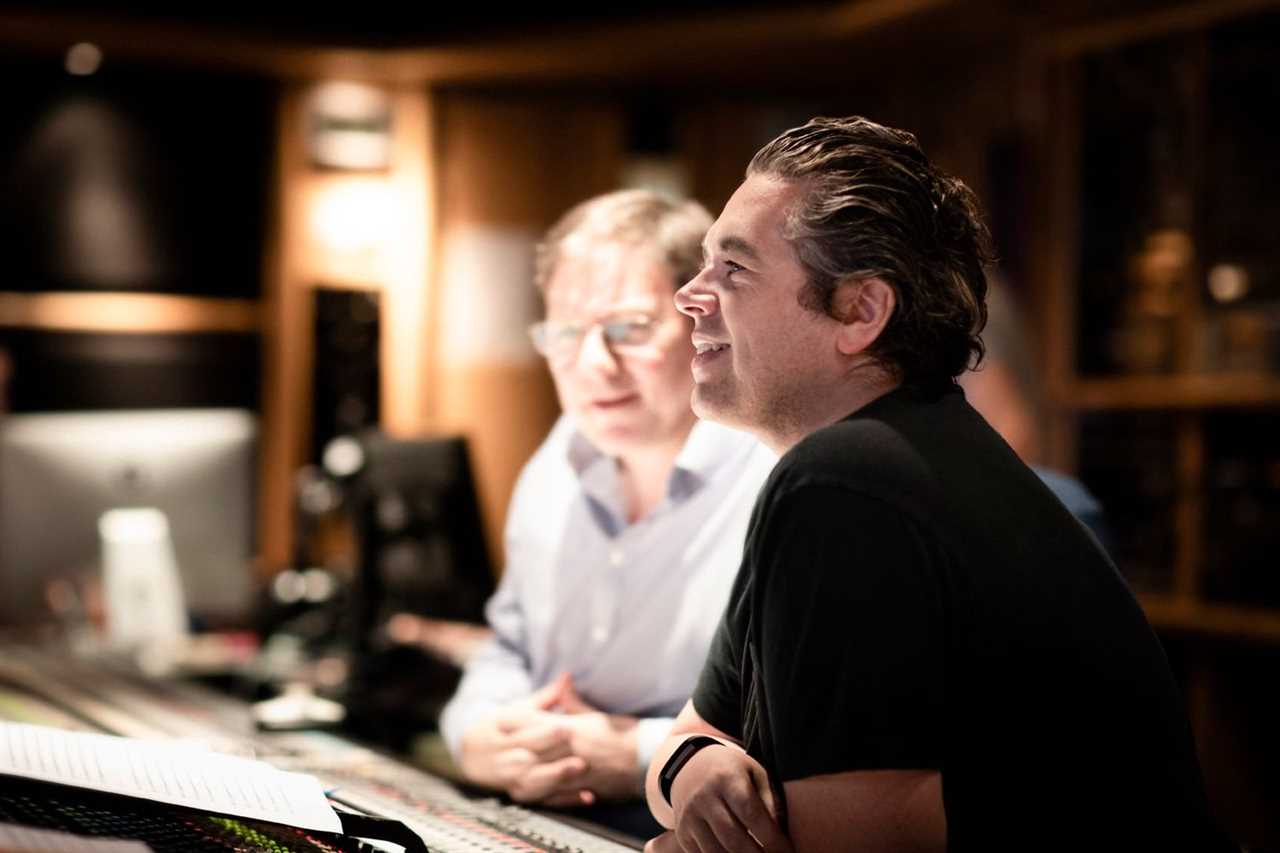
Each time I speak with Balfe it’s clear that he not only loves what he does, but is endlessly curious. That curiosity finds its way into his scores, and in the case of Black Widow results in one of the most memorable and emotional Marvel film scores to date that feels completely unlike anything Balfe has done before.
Check out the full interview below. Black Widow is now playing in theaters and is available on Disney+ with Premier Access.
I know you replaced another composer on this one, so how much time did you have to actually write and record this score?
LORNE BALFE: I had time. I think the internet is naughty sometimes, making things out to be last minute. Actually, we were the last recording session at Abbey Road just before lockdown. And I think on the day we started recording, I think that's when everybody started using hand sanitizer and everybody coming into the control room were elbowing each other [instead of shaking hands]. That was the beginning of the elbow. And it was weird because the orchestra, everybody kind of knew that this was potentially, this is the last time people are going to record for a long, long, long, long time. So we had about a week-and-a-half of recording and then literally I think it was a couple of days later, lockdown. But we got it done. And then everybody managed to start working remotely, very quickly.
I'm curious what your conversations with Cate and with Marvel were like about what is this going to sound like? Because it's a very different movie for Marvel as it's going back in time a bit. It's pretty intimate, revolving around Natasha, and it's really kind of a family story, but there's also that Russian influence. What were those kind of early conversations like about what they were looking for?
BALFE: I think Cate and I spent longer talking about Natasha's past and Yelena's past. We spoke more than probably I spent writing. Because the thing is, is that we never talked about the fact that it was an action movie. We never talked about the fact that it was a superhero movie. It had nothing to do with that. It was exactly what you said. It was an intimate family story. And I think after a lot of conversations with Cate, the importance was what I thought Natasha and Yelena would have listened to when they were children. And it would have been Russian folk music. There's plenty of music of folk origins, so everything I found was kind of memorable, had kind of been put into our society already. So I thought, I'll write brand new folk tunes as if it had been written in 1910, and that had been sung to her when she was a young child. And that was the origin and the basis of it, to kind of work from there and try to make it as authentic but just honest and not treat it as “well, superheroes.”
So that's what we spent a lot of time talking about. And then getting immersed into this world, musically. I spent a lot of time listening to Prokofiev and Stravinsky and I'm going right back to the origins of Russian music, so that it didn't become a parody. I'm not academically trained. I'm not a true classical composer. So I wanted to go back and look at that music and see what the essence of it was. So there was a lot research regarding that and immersing yourself in that world of the darkness in their poetry and literature and in the music.
It's fascinating. Russian music, there's a feeling to it, and a tone to it and it doesn't necessarily come from the instruments. So there is a kind of a tonality to it, and there was a lot of that. And also, delving into the world of the Avengers — there hasn't been a theme as recent as the Avengers that is now just one of the most memorable themes of all time. And I'll probably get a telling off for not using it enough times, but we used it when it was right.
I wanted ask him about that because, again, the film feels like a Natasha story and that's what the fans have wanted for for so long, a Natasha movie. It’s not about the Avengers, it’s about her. But that theme came at the perfect moment. Was that fun for you to play with that theme?
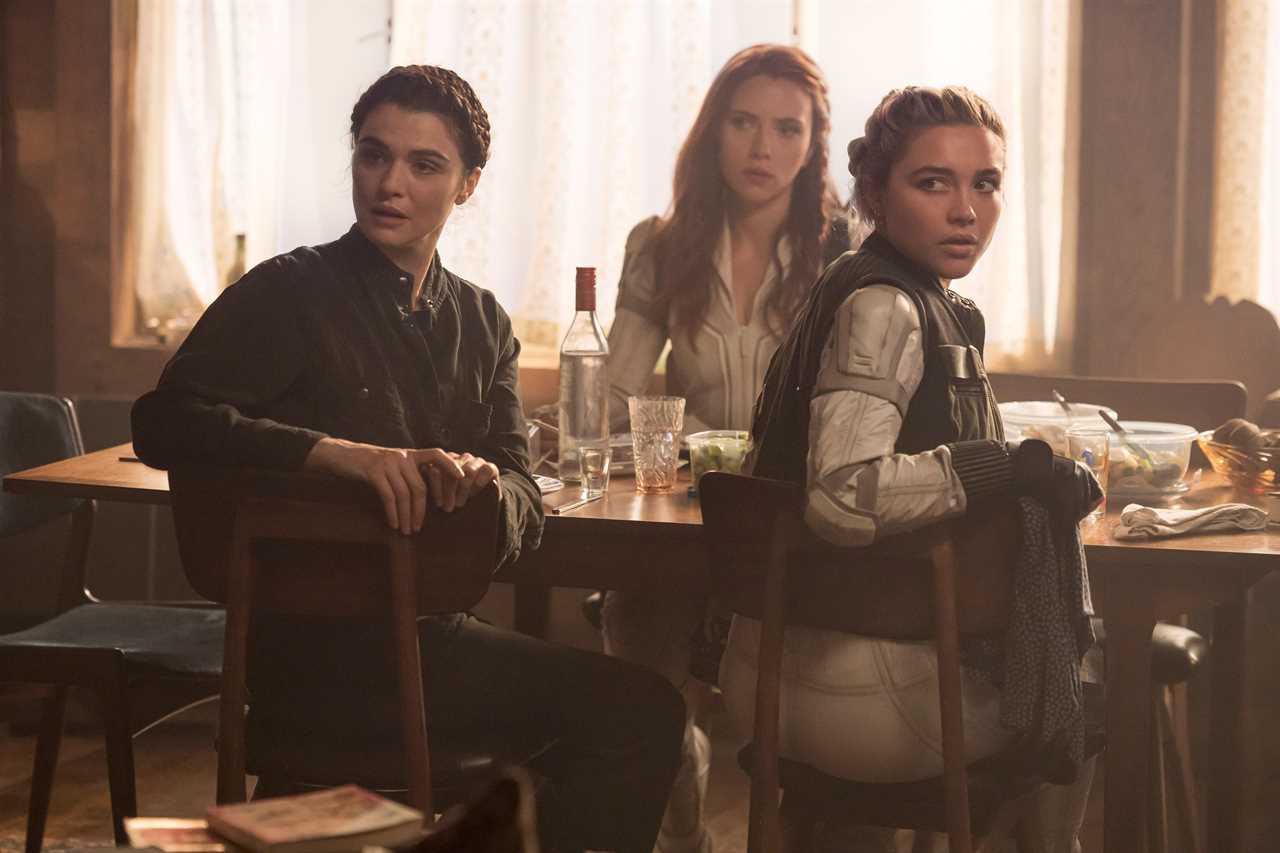
BALFE: Look, it's the same as Casino Royale, and you're waiting for the theme, but the audience deserves it once he becomes Bond. I just think the past and themes, you owe it to the audience. And with Terminator: Genisys, there was quite a few of them where the theme never really got used. I never understood why. It would appear at the beginning and the audience wanted it when the moment is right. It just gives you that memory of when you were in the theater and you watched it for the first time. It's so important. But touching a theme like that, it's the same with Mission: Impossible. It's the Holy Grail.
You wander around the house, whistling these tunes from the age of 10. So you’ve been preparing yourself for the job for a long time. Prepping yourself for the opportunity. But also, it's like everything. It was the fact that A, we got to record it at Abbey Road Studios, where the majority of the Marvel family films have been recorded. Especially the Avengers movies have been recorded there. And also, there's little hints there. There is a Black Widow theme in the Avengers movies, but it's very subtle. And it is in the film a couple of times. But the main thing was to create a new one, to kind of really show her past. And also, because now there's more development. There's a bigger opportunity. But listen, it's like a toy shop. When you're legitimately allowed to touch someone else's toy, and in my case, it's their theme, it's great fun. You just hope you don't break it, that's all.
Marvel is unique in that Marvel only makes Marvel movies, and you've worked on a bunch of other films for other studios, but like Paramount makes a bunch of different kinds of movies, not just Mission: Impossible movies. Was there anything distinct about working with Marvel that you felt?
BALFE: No. The biggest difference is the sense of team and community and family with them. Especially with Kevin [Feige]. There's the few kind of studio systems where, like DreamWorks Animation used to have it with Jeffrey Katzenberg. Where there was that head who was also a creative. And he really was there. He sat in every meeting with the directors and really helped create the films as well. Not just look at it as the business side. It was the creative side also. And that is the same with Marvel, and as an outsider coming into it, seeing the total backing and nurturing that they give to their directors is fantastic. But also the fact that it's full on. Everybody's working together on it. It's not part time and there's 20 films on the go, and we're just going to pop in and out. They're fully invested in it. And they're in the edit continuously and the dub and invested in the music, which is great because sometimes people aren't invested in it. So it's definitely a different world. And also, it's the fact that it's crossing all the platforms. It's TV shows now and it's films. So it's definitely unique, but it definitely reminds me of how it used to be with Jeffrey at DreamWorks, where there was that ability to have the people in charge per se being also creative, and it's great.
I was curious as well, though, this wasn't technically your first Marvel movie, because you have a credit on the first Iron Man for additional music by. I was wondering what that experience was.
BALFE: Technically, yes.
Technically. What did you do on that one?
BALFE: Well, I used to work for Hans Zimmer. And I have 15 years of the best training in my life working for him, and we worked on a lot of movies. And that was one movie that Hans was helping produce the soundtrack for. I was in the world of additional writing and additional writing was when you come in and the nature of the beast of films, they're so big. And the picture turnover is changing every day and there's a screening every two days. And you need a good solid team around you. And it's funny, a lot of people kind of lie about it and say they don't [need a team]. We perfectly well know they do. But they keep them hidden for some reason. But yes, Ramin [Djawadi] was doing the Iron Man score, but Hans had been producing it. And I think I maybe had just started with Hans around then. But yeah, that was my role for quite a long time, was working with Hans on a lot of movies. But you're right. I had forgotten that, a long time ago.
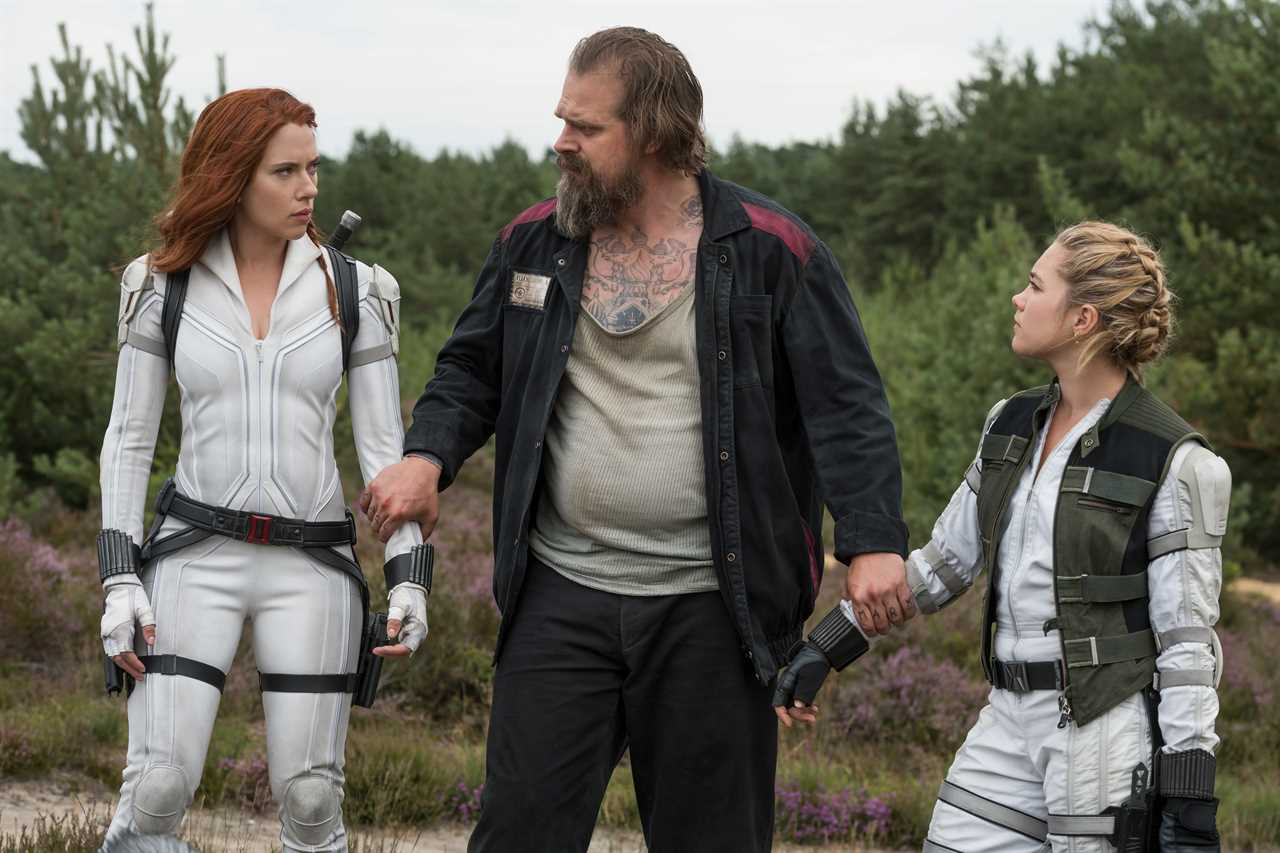
That’s one of the things I like about Hans because he doesn't hide it. He talks about his collaborators, his team, his band.
BALFE: Yeah. He talks about it, but also he moves the chair and boom, he puts you there. And he gave me my relationship with Michael Bay and he gave me my relationship with Jerry Bruckheimer. And in a meeting, if your piece of music's played, he will point out who has contributed to it. And it's just so rare. It’s really, really rare, that people have the confidence to do that. But he does and look, he's given so many of us our careers. It's been that simple. Hans and I, in 15 years, we never really talked much, strangely, about music. We talked about filmmaking and storytelling and neither of us are trained classically. And we still write things together. Last year, Ron Howard had a documentary called Paradise and we did that together. My studio's next to his in L.A., so I'm still learning from him. I still always find it astonishing that he wants any input from me because I just go, "You're Hans Zimmer.” And by him opening the dialogue, I'm doing another film now with Jerry Bruckheimer and I'm doing Michael Bay's new movie at the moment, Ambulance. So it's because of that and these introductions by Hans that it's been able to happen.
I know Christopher McQuarrie has confirmed you’re coming back to score the Mission: Impossible sequels. Where are you at on those?
BALFE: I've started. I started before filming, which was a great, great luxury. I went out for dinner with Chris and he told me about the plot of this one at the moment, [Mission: Impossible 7]. That was about two years ago. I started writing then. It was such an exciting storyline that it created inspiration automatically. So when Chris teases these tracks it's because what I do is when I write, I send them to him, or I message it to him or I text them. Because he'll send me a page of the script, or just a line, or he'll be on set when there's a stunt happening and he'll just kind of send me just a photograph of the pre-prep or something that just gives inspiration. And then I start writing. So that's how we kind of get going. And I think I'm sure he'll be posting more. But that's where I am. I'm writing.
So when the movie comes out in May of 2022, it'll be a score that's like three years in the making probably.
BALFE: Well, you see, there's a problem with that because then if the score's no good, then…
I mean it’s great that Fallout turned out so well, but for all of you guys, you’ve set sky-high expectations for the next ones.
BALFE: Yes. I watched Fallout four or five months ago. It was on TV. I was flipping through the channels. And it is an amazing film. And I still think one of the best fight sequences in film is in that movie. And I cannot take any credit for it because I didn't write any music for it.
In the bathroom.
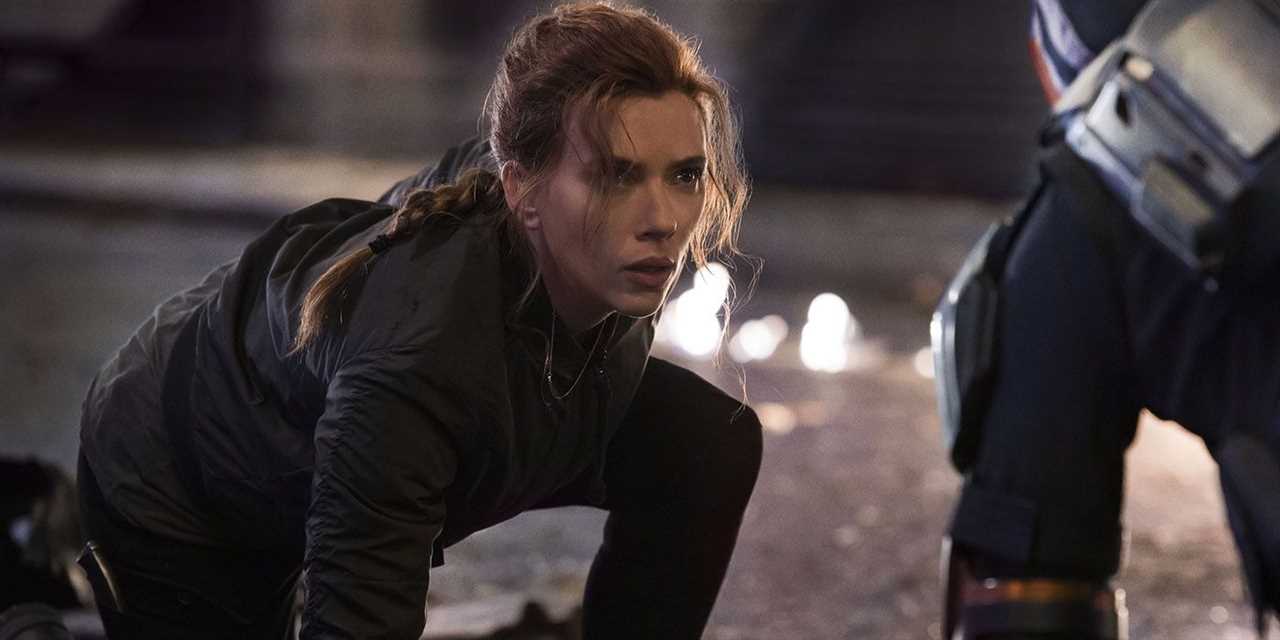
BALFE: Yes, it’s just incredible. It's just so real. For Chris, his passion is the story and the narrative. But my God, the action is amazing. I've said it before, when I've got the opportunity to work on it, it was out of my league. The films to me have always been kind of... the gods of composers work on them. So I was very privileged to be invited into the family because it is a tight group and it really is, it's a privilege. But also it's being able to play Lalo's theme. It is fantastic. I've been doing it all day today, let's just say that.
I love “The Plot.”
BALFE: The weird thing about “The Plot” is that there's so much in “The Plot” that's still to be discovered. Because in Fallout, there was a couple of things where people would message me and say, "Are you taking that from this film," or something and it's like, go back 50 years. Back to the TV show. It was written then. We all remember the beginning of “The Plot,” but there's more interesting parts in the middle part. There is so much mileage to that.
When I was doing the theme the first time round on Fallout, everybody was saying to me, have you sent Lalo the music to hear? And I was just too nervous because I thought, “what if I send it and it's total shit or something?” and I thought,”Well, I'm going to keep distant.” Anyway, so I kept building up the courage and then we finished, and I'd sent it just before finishing. And there's somebody I knew that knew him. I sent it. No reply. No reply. And I thought, oh, God, that something went wrong or it wasn't good. And I was doing an interview with a Brazil radio station. I think it was Brazil. And they were talking and they said, "Now we have Maestro Lalo on the line." It was weird. The phone went dead. And I was like, "Oh God." It was so strange. They call back and then they said, "We've got a message from Maestro Lalo Schifrin" and he never received the email, but they played him like the whole album or something. Of course, I was having to listen to it. But what I thought was lovely was the fact that he said he never realized, when he went all those years ago, that the music would still be alive and bringing happiness.
Black Widow is now playing in theaters and is streaming on Disney+ with Premier Access.
-----------------------
By: Adam Chitwood
Title: Black Widow Composer Lorne Balfe on His MCU Debut and Mission: Impossible 7
Sourced From: collider.com/black-widow-movie-soundtrack-score-lorne-balfe-interview-mission-impossible-7/
Published Date: Tue, 13 Jul 2021 15:00:00 GMT
Did you miss our previous article...
https://ballerawards.news/movies/rob-zombie-shares-design-for-perfect-recreation-of-the-munsters-house

